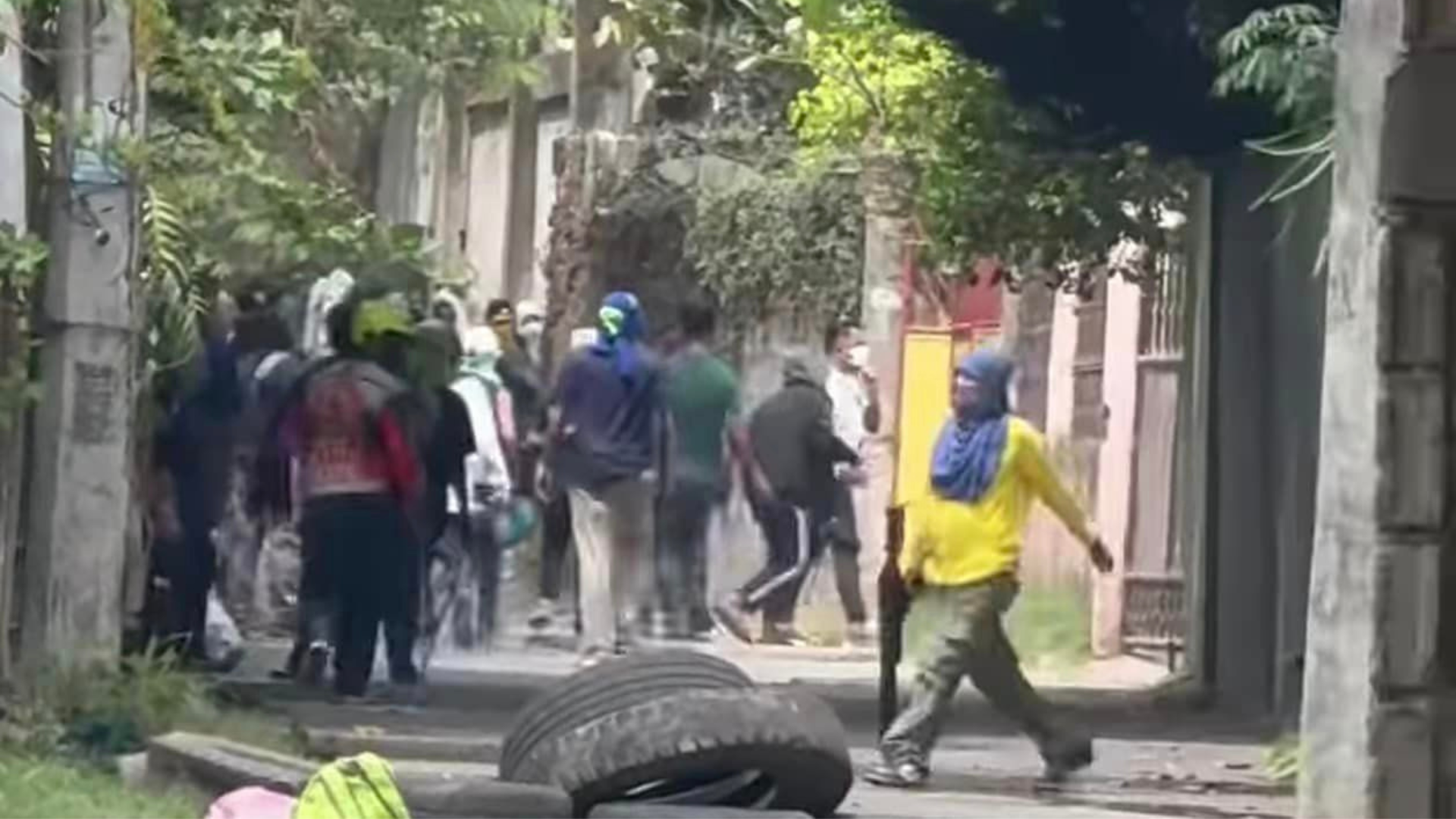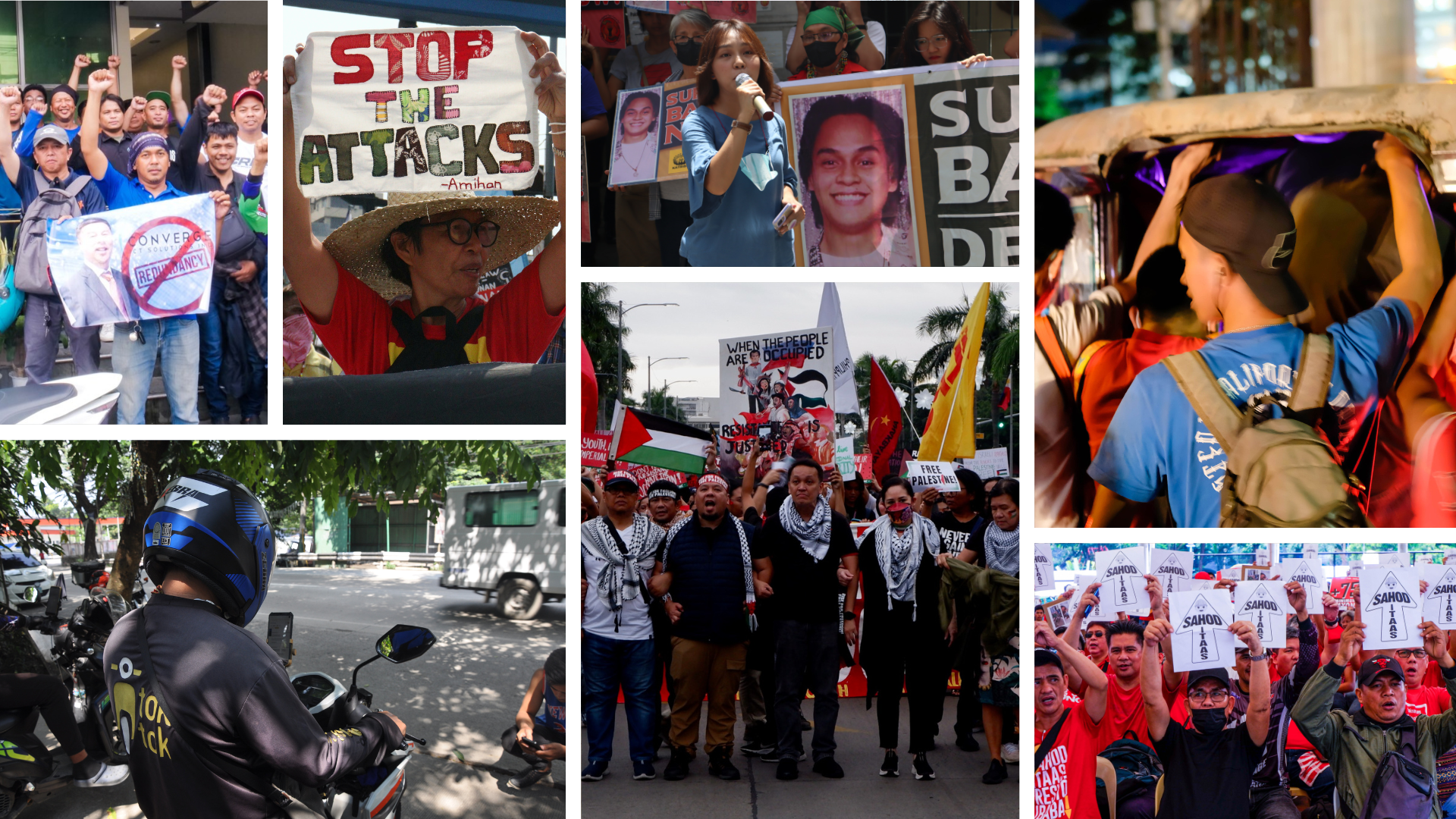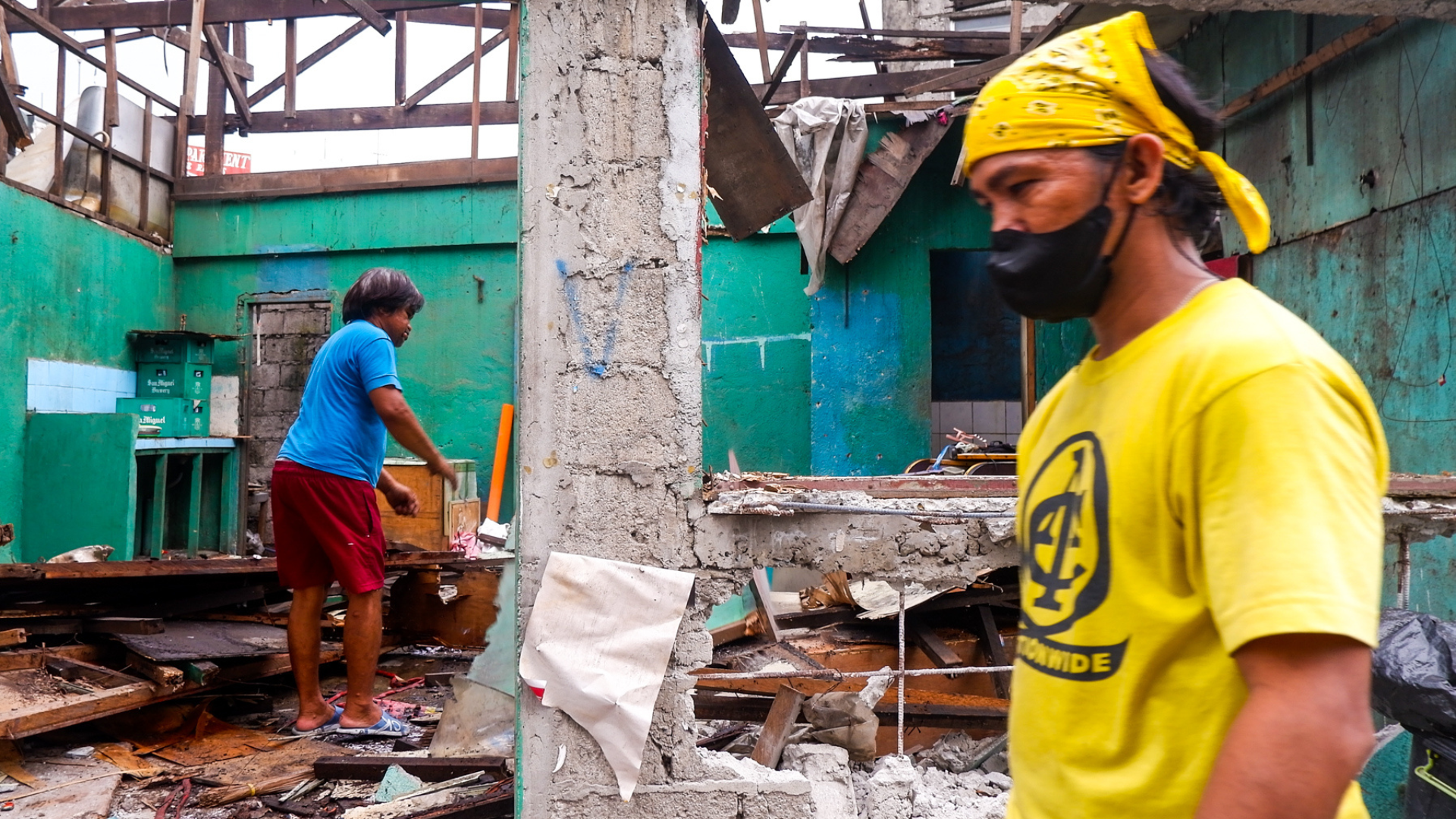Navotas urban poor demand EO for on-site housing, slam Aquino’s failed promises
Some 700 urban poor from Navotas City gathered at the foot of Mendiola Bridge near Malacañang to protest the threat of eviction from their communities living near the fish port. Carrying a wooden structure symbolizing their homes, they demonstrated against the massive demolition of urban poor homes and off-city relocation schemes under the Aquino administration. […]


Some 700 urban poor from Navotas City gathered at the foot of Mendiola Bridge near Malacañang to protest the threat of eviction from their communities living near the fish port. Carrying a wooden structure symbolizing their homes, they demonstrated against the massive demolition of urban poor homes and off-city relocation schemes under the Aquino administration.
Before the presidential election of 2010, Benigno Aquino III signed a covenant with the urban poor promising to help informal settlers. But Elgar Cornista, President of Nagkakaisang Lakas ng Navoteno Federation, expressed anger over Aquino’s failed promises.
“So far, with only one year left in the presidency, he has not done anything for us,” Cornista told Pinoy Weekly. “We call on President Aquino to release an executive order in favor of our demand of on-site housing for the urban poor. The demolition in our communities and the off-city relocation has to end.”
According to Kadamay, under the Aquino administration, at least 70,000 families have had their homes demolished to give way to different Public-Private Partnership projects. Among them are the communities in Navotas City near the fish port.

“We are affected by the road-widening project of the DPWH (Department of Public Works and Highways). Our livelihood comes from the fish port, at walking distance from our houses. This is why we are demanding that our houses not be demolished,” Cornista said.
Initially, government officials said that they would only widen the road to 13.5 meters, but their plans have changed considerably. Now they are widening the road to 27 meters. The road is part of the North Bay Reclamation Project, urban poor groups say.
“Right now, the NHA (National Housing Authority) and the local government is forcing residents to leave their homes. They go house-to-house, and offer a relocation site in Pandi, Bulacan. But there is no livelihood there. In fact, those who have already agreed to be relocated came back, and just erected shanties again here near the fishport. In the relocation site there is no livelihood, no water, no electricity,” Cornista added.
Carlito Badion, national secretary-general of Kadamay, said that Aquino has not addressed the root of the “squatting problem” in the country. He said that the government should implement a significant wage increase so the urban poor can avail themselves of decent shelters.
“The implementation of a P16,000 national minimum wage for both the public and private sectors will allow the poor to avail themselves with basic social services, which the government should have provided its citizenry with in the first place,” Badion stressed.


Estrelleta Caser, president of Market 3 Women’s Association, agrees. She has been living in the fish port since 1992.
“Many of our houses have been demolished, while the people were not given relocation, only financial assistance.” The amount of money they received varies between P2,000 and P4,000, depending on how long the residents have been living in the area. “This financial assistance is of course not sufficient to survive,” she said.
While other residents have been relocated, Caser added, some of them came back to the fish port because there is no livelihood in the government’s relocation site in Towerville, Bulacan.
The woman leader said that their association is the only one left with homes standing inside the fish port, because they continue to resist demolition. Meanwhile, in the communities outside the fish port, the people are now bracing for renewed demolition attempts.
“We are demanding for on-site housing because the fish port is where we get our livelihood. What good is ‘development’ if it does not include us, the urban poor?” Caser emphasized.




